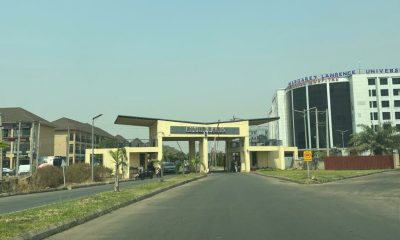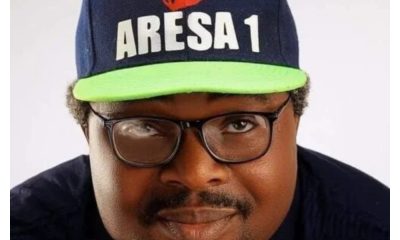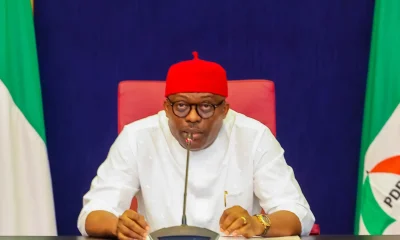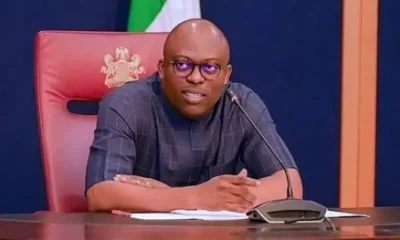Politics
Fubara Says He Reconciled with Wike for Rivers’ Sake
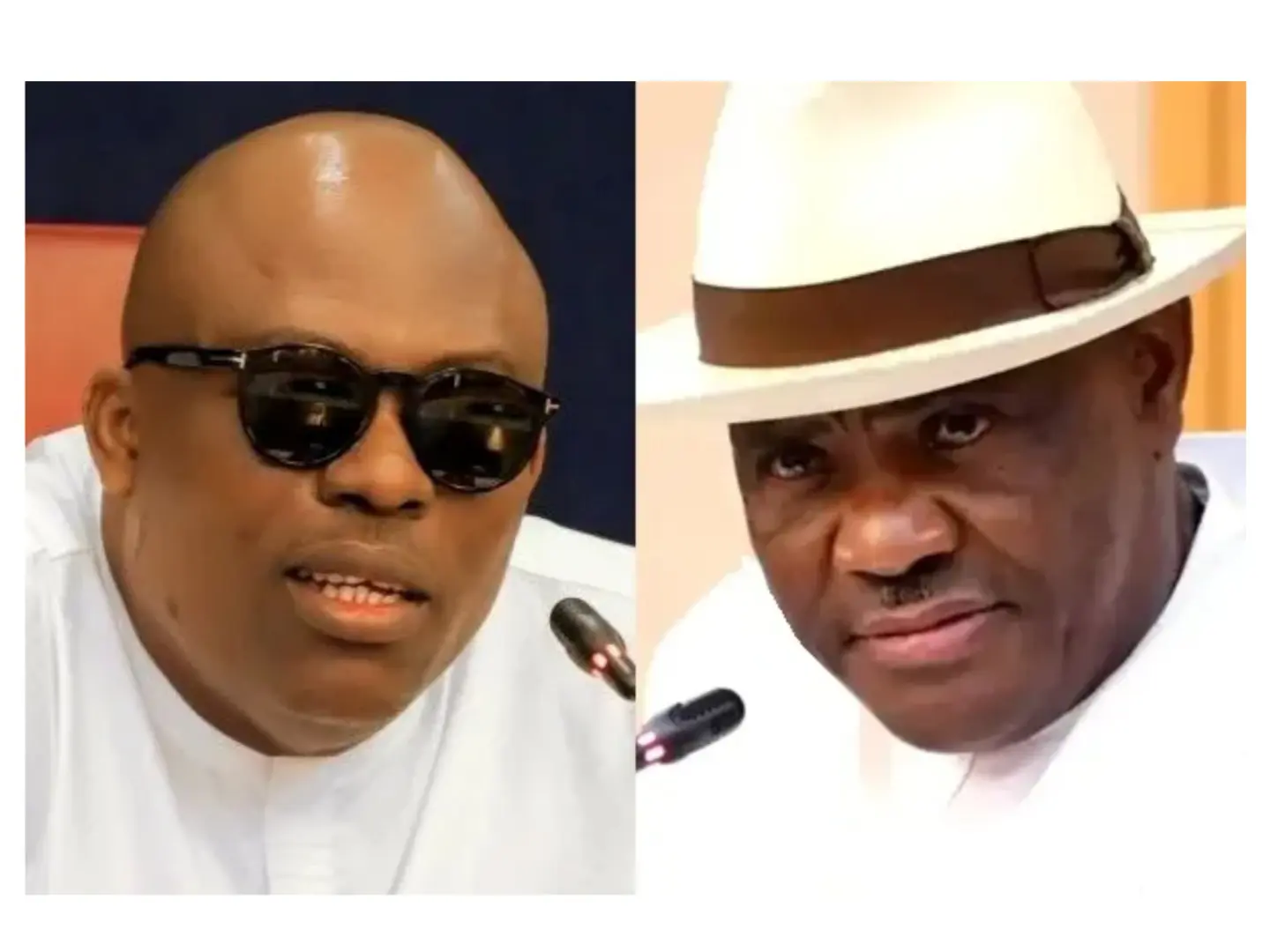
Rivers State Governor, Siminalayi Fubara, has publicly confirmed that he and the Minister of the Federal Capital Territory, Nyesom Wike, have reconciled and agreed to bury the hatchet in the best interest of the state. Speaking in a statewide address in Port Harcourt on Friday, the governor announced that the long-standing political crisis that had crippled governance and led to a federal intervention is now over. This announcement marks a symbolic end to a bitter and public feud that had its roots in a power struggle between the former allies.
The reconciliation, Fubara disclosed, was the result of a successful peace process brokered by President Bola Tinubu. “In the course of the six-month period, Mr. President graciously brokered the peace process with all the parties successfully,” Fubara stated. “Our Leader, His Excellency, Nyesom Ezenwo Wike, CON, all members of the Rivers State House of Assembly and I, as your Governor, have all accepted to bury the hatchet and embrace peace and reconciliation in the best interest of our dear Rivers State.” This confirms earlier reports from Dependable NG that Wike had also publicly declared an end to the rift, stating on a national television program that he had “forgiven” the governor and that “everything is over.” The public pronouncements from both men signal a genuine, albeit hard-won, truce that is expected to pave the way for a return to normalcy in the state.
The political crisis, which began shortly after Governor Fubara’s inauguration, had spiraled into a constitutional impasse that brought governance to a standstill. The feud between the two political giants led to a deeply divided House of Assembly, impeachment threats, and the eventual demolition of the Assembly complex. With the state on the brink of anarchy, President Tinubu, on March 18, 2025, declared a state of emergency, suspending the governor, his deputy, and the state legislature. As Dependable NG confirms, this drastic action was taken to restore public order and allow for a political solution. The emergency rule officially ended on September 17, 2025, and saw the reinstatement of all democratic institutions. The governor’s triumphant return to Port Harcourt on Friday was a moment of jubilation for his supporters, who had endured six months of a politically tense atmosphere.
In his address, Fubara acknowledged the “hard lessons learnt from the emergency rule.” This statement is a powerful reflection on the high cost of the political conflict. For six months, the state’s budget was not passed, development projects were stalled, and the political and administrative machinery was paralyzed. The emergency rule itself served as a stark reminder to all parties involved that political disputes, when taken to the extreme, can lead to a loss of power and a federal intervention that is costly to everyone. The governor’s acceptance of this lesson, and his expressed commitment to reconciliation, suggest a new, more pragmatic approach to governance. He reassured those with “genuine fears, frustrations, and uncertainty” that nothing has been “irretrievably lost,” adding that there is “ample opportunity for necessary adjustments, continued reconciliation, and inclusiveness.” Fubara’s ultimate justification for the reconciliation was that “the costliest peace is cheaper than the cheapest war,” a phrase that encapsulates the pragmatism of choosing an imperfect peace over a destructive conflict. The focus will now shift to whether both parties can honor their commitment to peace and work together to deliver the dividends of democracy to the people of Rivers State.



